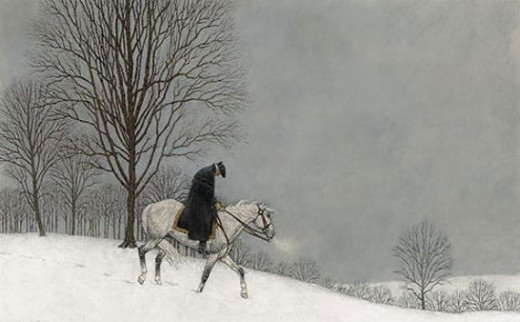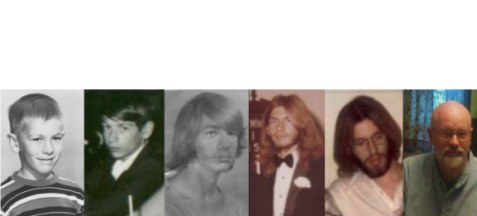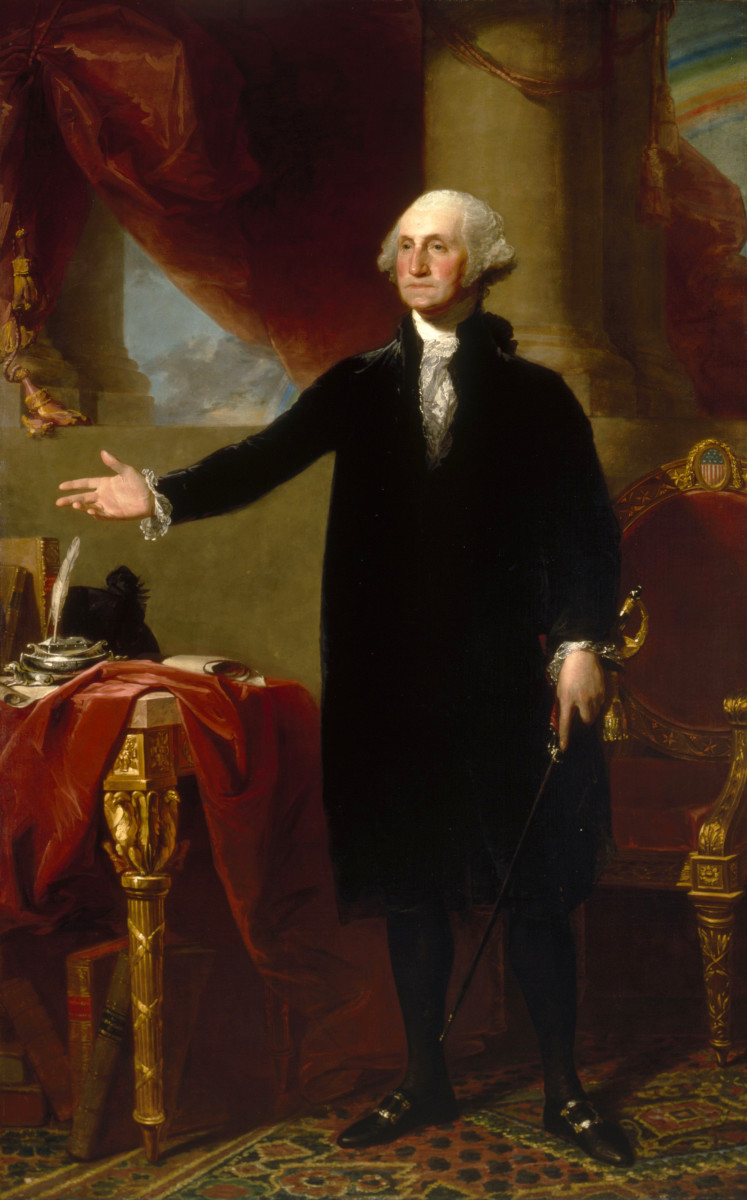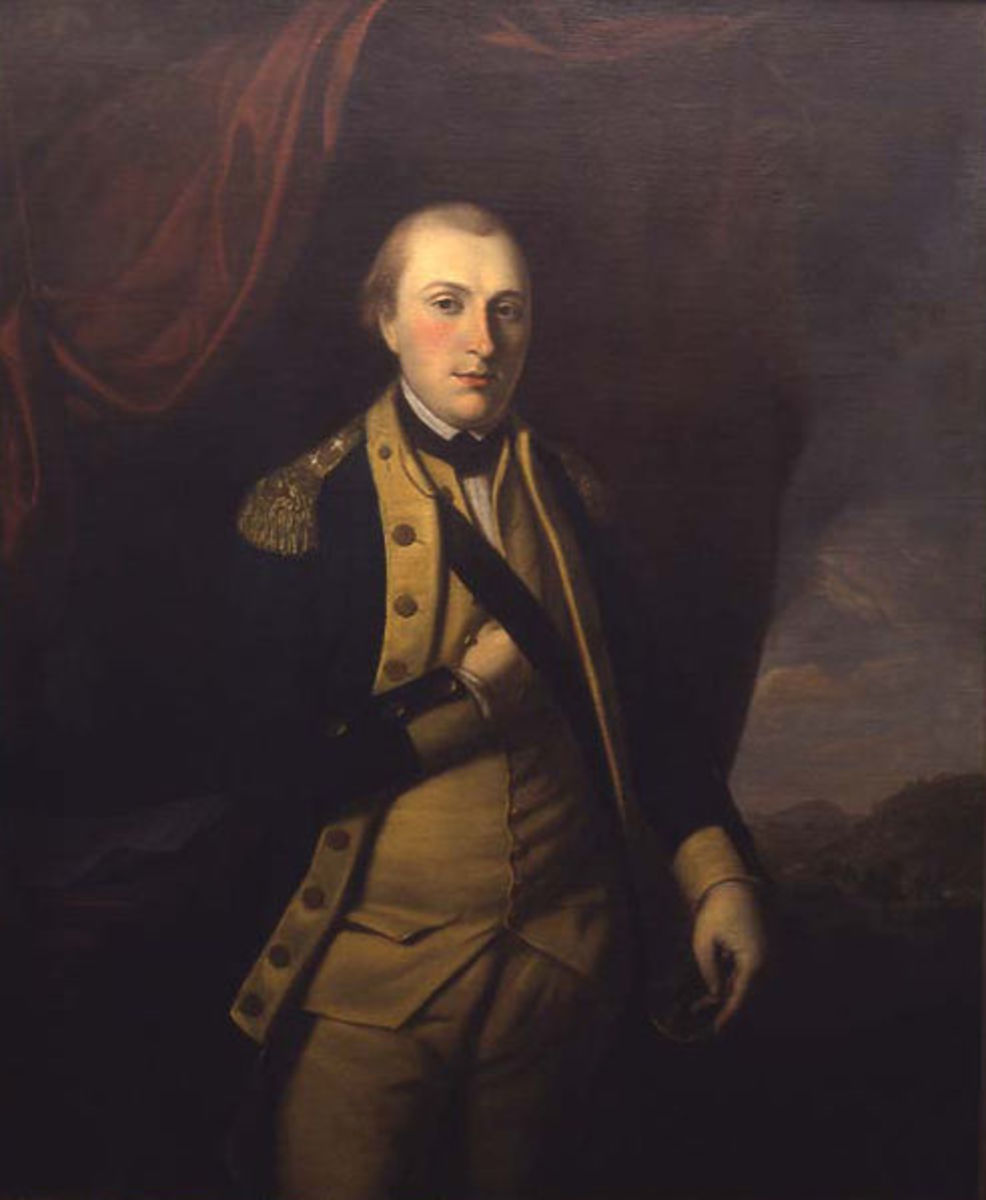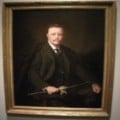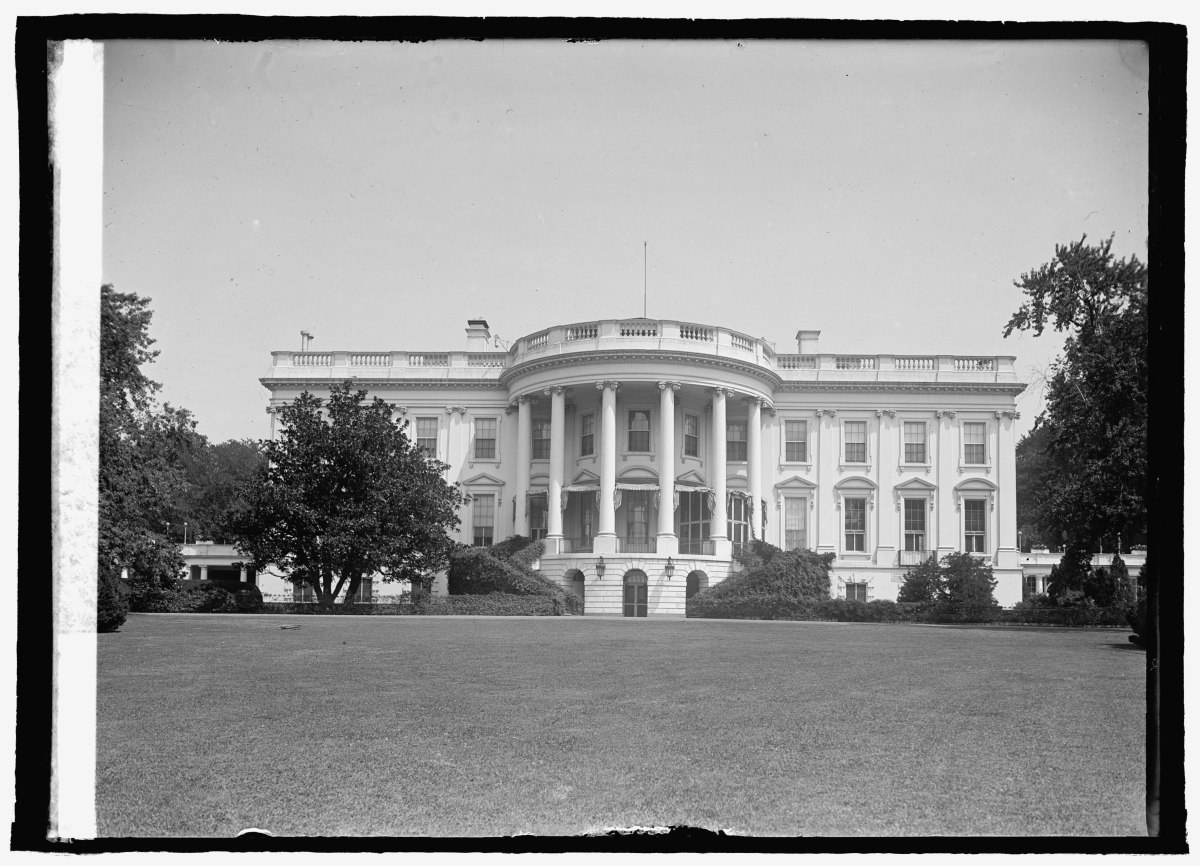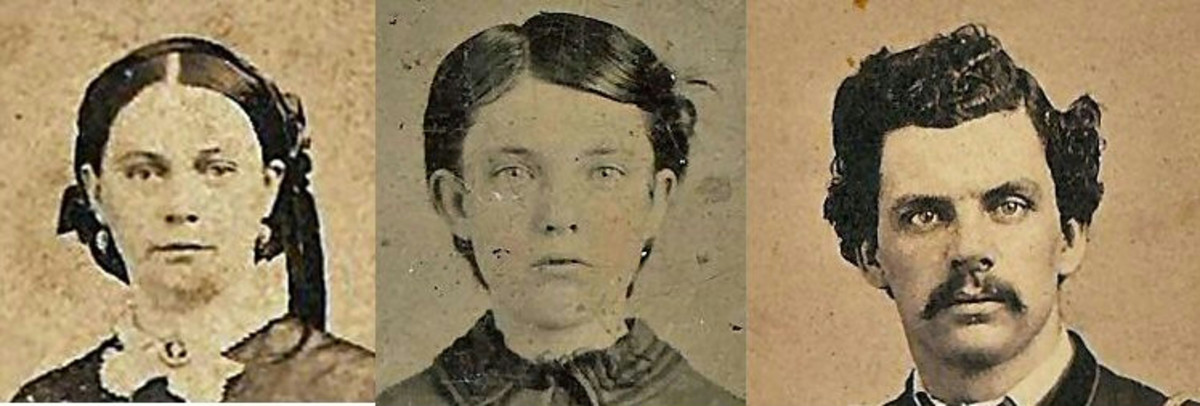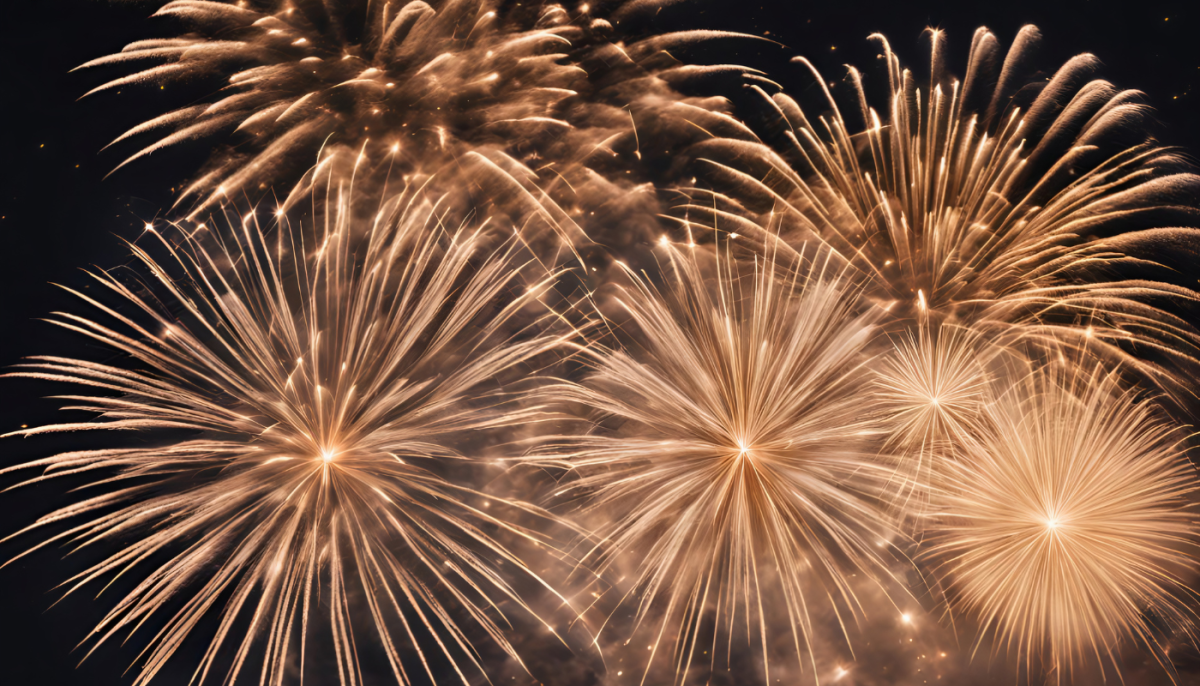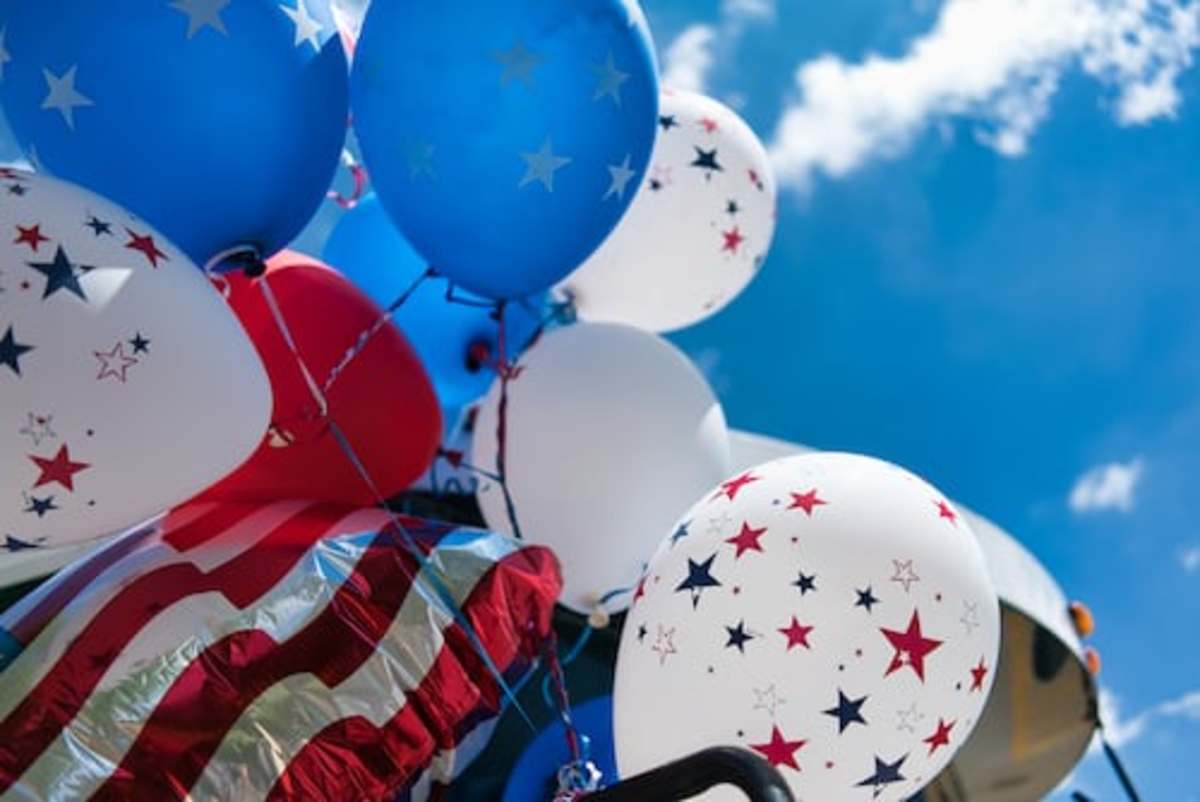The Man Who Gave Us America
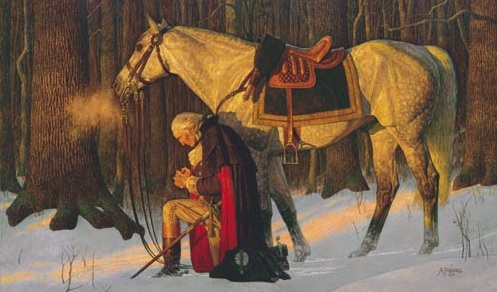
In 1755, before the American revolution, near what is now Pittsburgh, 1,000 British soldiers were killed or wounded at The Battle on the Monongahela, part of the French and Indian War. The Native America warriors who fought alongside of the French and Canadian forces were known to be expert marksmen, and one after another British officer was brought down until only one remained. Over a dozen rounds were fired at this 23 year-old colonel, 2 horses were shot out from under him, 4 bullets pierced his coat and 1 through his hat, until the Native American chief ordered his men to cease firing, saying "This man is under the protection of the Great Spirit . . . this man was not born to be killed by a bullet."
Years later when that same chief heard that this British officer had returned to those Pennsylvania woods, he traveled a great distance to see him. Standing face-to-face, the Native American leader said "Listen! You will become the chief of nations, and a people yet unborn will hail you as the founder of a mighty empire. I am come to pay homage to the man who is the particular favorite of Heaven, and who can never die in battle". When many people hear the term "The Great White Father" in an old cowboy movie, they assume the reference is to some Native American religious notion - when the Native Americans of our revolutionary era spoke of "The Great White Father", they were talking about George Washington.
Negotiating for the lands along Lake Erie, Chief Cornplanter was told that his efforts would be a direct service to George Washington . . . to that Cornplanter replied "I will serve the Great White Father". Today, many seem to think of George Washington as merely the man who happened to be the first president of the United States Of America - but he didn't 'just happen to be' the first president, he was the man who won America it's independence, his philosophy and character defined it's course, and he was the only man who could have been our first president. It's absolutely reasonable to say that there would not be an America without George Washington . . . there would be a country here, it may even called 'America', but it would not be the America that it is apart from the immeasurably profound influence of George Washington.

While our own school children learn little more than the fact that he was our first president, in his own day people around the world spoke of the philosopher Washington and his instructions on the liberty of man. After defeating the most well trained, best equipped, thoroughly experienced army in the world with an army of farmers and shopkeepers, Washington returned his commission as Commander-in-Chief of Continental Forces to the Continental Congress . . . upon hearing this, King George of England announced "If he does that, he will be the greatest man in the world." Washington could have been the first king of America, and many were advancing that scenario - but unlike any conqueror before him, George Washington sacrificed his own self-interests for the cause of an idea and the welfare of his people.
His return to private life was short lived, he was persuaded that only his presence could realize a new nation among the battling statesmen at the first Constitutional Convention. Upon his arrival he was unanimously elected president of the Convention. A constitution was forged under the hope that all that was disagreed on during the convention, would be in the hands of George Washington as the first president. The only president who was unanimously elected, and then unanimously reelected, not one vote against him, after surviving battle after battle he personally led on horseback, after surviving smallpox, tuberculosis, malaria, dysentery, and pneumonia, George Washington directed that he be called 'Mr. President' . . . not a term for a conquer, not a term for a king, but a term for a citizen leader. Refusing to accept the $25,000 salary he was eligible for, as a President, Washington again staggered the minds of history when he voluntarily stepped down from office and peacefully handed leadership over to another. The world had never seen anything like it, and America remains a remarkable experiment in freedom and self-governance.
Though considered to be the informal figurehead of the Federalist party, Washington never formally joined a political party, and he cautioned us against parties believing they created too much division and hindered the idea of a citizen leader by manufacturing and promoting their own political 'leaders'. After his stepping down as president and his retirement from private life, president John Adams asked Washington to take command of all United States armies in 1798, due to an impending war with France - with Washington in command of the American army, war with France never occurred.
In his private life Washington was regarded as the greatest horseman of his time, he (without formal training) not only was the architect who designed his own Mount Vernon home, but laid-out the blueprint for the new nation's capitol city, of course, named 'Washington'. He was an expert dancer, the largest distiller in America, and America's first art collector. Seeking to provide the new nation with a sturdy beast for farming, Washington crossed a donkey with a horse and introduced the mule to America.
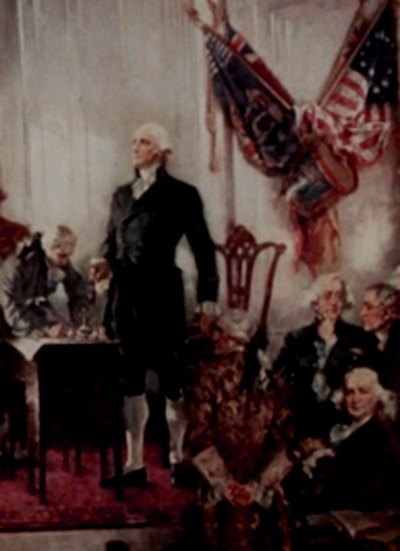
Very often, when he was traveling, Washington would rise early to sneak out of a town or enter it before he could be escorted by local dignitaries. Among men the caliber of Jefferson, Franklin, Hamilton, Adams, Madison, etc, etc, George Washington was regarded by each of them as the best of them all. Washington is the only one of America’s founding fathers to free his slaves. He freed all 124 of his slaves in his will, and left enough money in his estate to care for all of them for decades after his death.
In 1796, President George Washington published an open letter to the Cherokee Nation. Washington promised the Cherokee that the federal government would enforce treaties honorably and ensure Cherokee survival as a people and a nation. Washington describes his commitment to this as both a matter of law and a personal promise. It was clear to all that Washington meant every word and the Cherokee accepted it as a sacred vow.
It amounts to nothing less than slander if we think of George Washington as the man who just happened to be the first president. His sacrifice built America, his ideas shaped America, and his character still defines the best of America. He is the indispensable man, there would not be an America without George Washington.
"Without the great moral qualities that Washington possessed his career would not have been possible; but it would have been quite as impossible if the intellect had not equaled the character. There is no need to argue the truism that Washington was a great man, for that is universally admitted. But it is very needful that his genius should be rightly understood, and the right understanding of it is by no means universal. His character has been exalted at the expense of his intellect, and his goodness has been so much insisted upon both by admirers and critics that we are in danger of forgetting that he had a great mind as well as high moral worth."
~ Abraham Lincoln
"Let him who looks for a monument to Washington look around the United States. Your freedom, your independence, your national power, your prosperity, and your prodigious growth are a monument to him."
~ Thomas Jefferson
